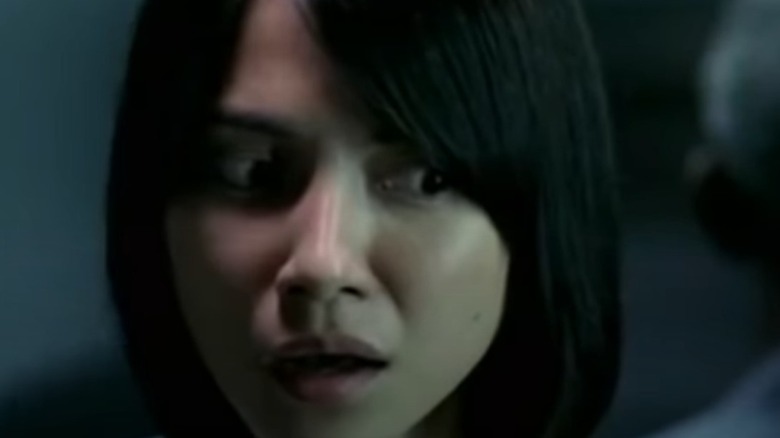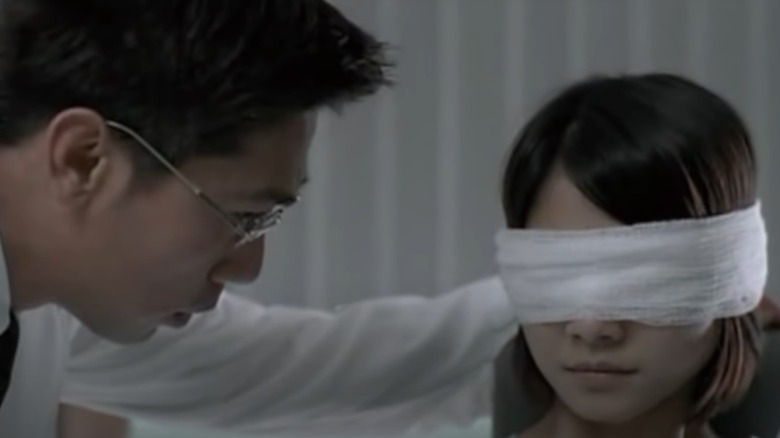The One Part Of The Eye That Has Horror Fans Scratching Their Heads
Consider the human eyeball. It's great at a lot of things — seeing, for example, at least in theory. Also, they're terrific at getting yoinked out of people's heads in horror movies, and feeling enough like peeled grapes that you can freak kids out at Halloween parties.
And, if you're lucky enough to be part of the world presented in 2002's "The Eye," its 2004 remake "Adhu," the 2005 remake "Naina," or the 2008 remake "The Eye," then you might just be aware that eyes are good for something else as well. They're positively crackerjack when it comes to facilitating a good haunting. The cornea, it seems, is the window to the soul — specifically, the restless souls wandering the Earth in search of gruesome deaths to foretell, as the various leads from the various incarnations of the story tended to learn after receiving corneal transplants from those gifted with second sight.
"Eyes." "Sight." These sorts of words sure get thrown around a lot when you're talking about eyes and sight, don't they? Notably absent are their noble cousins, "ears" and "hearing." That brings us to our main point.
Ghosts are best seen and not heard
It is a largely accepted fact that eyeballs cannot see ghosts, but let's put that aside for the time being and suspend some tasty disbelief. Eyeballs need to see ghosts in order for the plot of "The Eye" to make a lick of sense.
What eyeballs don't need to do, and follow us on this, is hear. In point of fact, they're pretty notoriously bad at it. It's part of why so many creatures developed ears — so that they could do hearing. Eyes weren't cutting it in the sound department. We may be belaboring the point here.
The only reason that it seems worth bringing up? Over the years, fans of "The Eye" have hesitantly put it out there that the protagonist's intermittent ability to hear ghosts clashes a little bit with the whole "was blind but now I see ghosts" premise of the story. Getting new peepers shouldn't change the way that someone hears things, right? Probably not, anyway. Unfortunately, until WebMD lands a few more verified cases of transplant-induced transoptical ghostification, there's no way to be 100% positive. Then again, maybe another three or four remakes will clear this whole thing up. Hindsight, after all, is 20/20.

